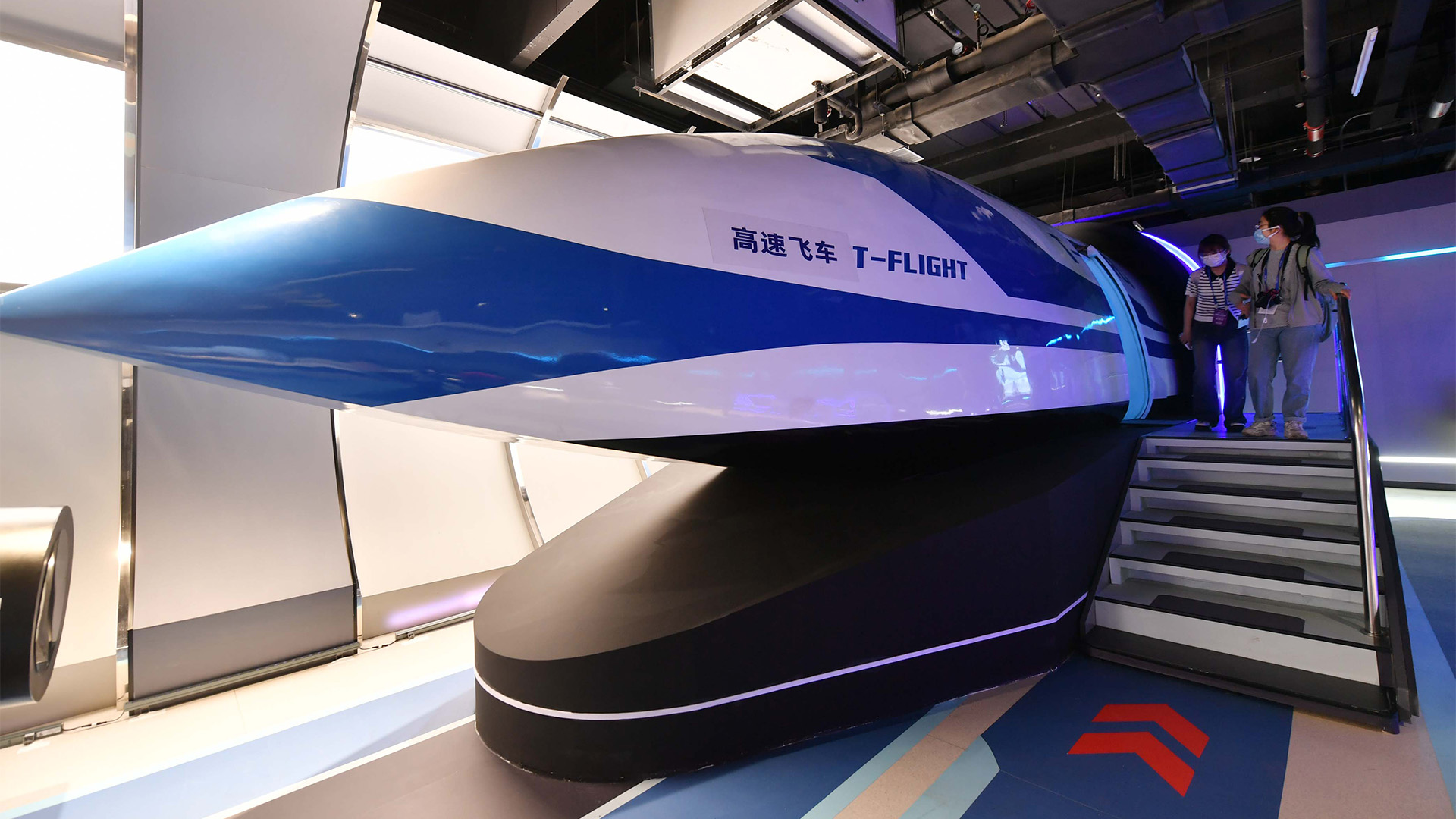
China says its maglev hyperloop train has broken the world speed record in a test run, reaching a blistering 387 mph (623 km/h). Ultimately, its makers want to build a train more than three times as fast that will break the sound barrier and outpace airplanes.
The maglev train, dubbed the T-Flight, was built by the state-owned China Aerospace Science and Industry Corporation (CASIC), New Atlas reported. Hyperloop trains work by pushing magnetically levitating pods through tunnels with very little air resistance.
The previous record holder for the fastest maglev train is the L0 Series SCMaglev in Japan, according to JRPass, which can hit a top speed of 375 mph (630 km/h).
Related: Future electric cars could go more than 600 miles on a single charge thanks to battery-boosting gel
To test the new train, CASIC built a track roughly 1.2 miles (2 kilometers) long in a low-pressure vacuum tube.
To reach such high speeds, the trains must encounter almost no friction. So CASIC smoothed the test track to a flatness with a 0.01 inch (0.3 millimeters) tolerance, meaning there is a 0.01 inch difference between the lowest and highest point of the flat surface. The 20-foot-wide (6 meter) tunnel also has a geometric size error of less than 0.1 inch (2 mm), meaning the margin of error against a perfect shape. And the entire pipeline can return to normal pressure in five minutes, New Atlas reported.
In the T-Flight's second phase of testing, CASIC aims to extend the track to 37 miles (60 km) and allow the train to reach 621 mph (1,000 km/h).
At this theoretical top speed, the maglev train would be even faster than a passenger jet, which cruises at an average range between 575 and 600 mph (925 km/h and 966 km/h), according to Simple Flying.
The company's ambitions don't stop there, however, with plans for a connection between Wuhan and Beijing that can reach up to 1,243 mph (2,000 km/h), according to a video from 2018.
Hyperloop systems can move vehicles or pods at speeds much faster than conventional trains — most of which are restricted to 59 mph (95 km/h) in the U.S.
Elon Musk first proposed a hyperloop system for the U.S. in 2013, but more than a decade later, Musk's vision has yet to see the light of day. One of the biggest companies in the industry, Virgin, shut down its own hyperloop company, which most recently went by the name Virgin Hyperloop in 2023.







